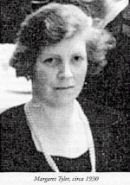Short, rattling breathing.
Wakes up angry or cross.
A little food fills up.
Fulness and noisy flatulence.
Worse eating and drinking cold things.
Bronchitis, capillary bronchitis, broncho- pneumonia, pneumonia, with above symptoms.
Kali bich [Kali-bi]
Yellow, thick, lumpy, tough, stringy or sticky secretions. ( Sanguinaria) Sputum sticks to teeth, tongue, lips, draws out in strings-coughs up casts.
Worse 2-3 a.m.
Worse from cold.
Capsicum [Caps]
Chest too full: not enough room in it.
Cannot get air deep enough into lungs.
With every explosive cough, there escapes a volume of pungent, foetid air. ( Sanguinaria)
Cough causes distant pains, or raises foul air.
Sputum dirty-brown, not rusty.
“Children of beer-drinkers: of over- stimulated men.”
Fat; flabby; red, cold face. (Red, hot, Belladonna).
Sanguinaria [Sang]
Cough ceases as soon as patient passes flatus.
Circumscribed redness of cheeks.
Distressing dyspnoea. Rusty sputum.
Hands and feet burning, or cold. Tongue red and burning.
Coughs, raises foul air ( Caps.) tough bloody plugs or purulent sputum: ends with belching.
Feels very faint, with sweat and nausea.
“Sudden chill: burning in chest: Symptoms of pneumonia: Rusty sputum; violent cough, felt as a concussion at bifurcation of trachea; as if a knife were in the parts; as if torn asunder; and after cough copious, loud, empty eructations, no other remedy has this.” (Kent.)
Desperate Cases.
Cantharis [Canth]
Inflammation of lungs, gangrenous type, prostration, and the lung affected burns like fire ( Terebintha, Kreosotum, Carbo vegetabilis), or as if full of boiling water.
Esp. with frequent micturition with burning, cutting pain.
Antimonium tartaricum [Ant-t]
Sudden and alarming symptoms of suffocation; oppression and short breathing: must sit up.
Accumulation of mucus in chest with coarse rattling: expectoration of thick white mucus after efforts to raise it. Chest filling up: threatened paralysis of lungs.
Capillary bronchitis: Broncho-pneumonia.
Especially infants and old people.
Drowsiness. Weakness. Lacking in reaction. Must sit up.
Sickly, sunken, pale, bluish face: twitching: covered with cold sweat.
Ammonium carb [Am-c]
Somnolence: drowsiness ( Antim tart.). Great debility.
Rattling of large bubbles in lungs.
Bluish or purplish lips ( Ant.t., Lachesis).
Coughs continually, but raises nothing, or with great difficulty ( Kali carb.).
Very Like Antim tart.-but Ammonium carb. is worse for cold, Ant. tart. is worse for heat.
Chests of old people; typical winter coughs.
Kreosotum [Kreos]
Dreadful burning in chest. ( Terebintha, Cantharis, etc.) Constriction.
Bronchitis: bronchitis, with fearfully offensive sputum. Gangrene of lung.
Bloody, greenish-yellow, pus-like sputum.
(One remembers an elderly women, drying of bronchitis, where the stench of breath and sputum was so terrible that she was screened. Kreosotum200, promptly cleared whole condition up, beginning with the intolerable odour; she made a good recovery.).
Arnica [Arn]
Says he is well, when desperately ill.
Carbo animalis [Carb-a]
Pneumonia, suppuration of right lung.
Burning in chest, or coldness in chest.
Suffocative cough, shakes brain, which feels loose. Sputum greenish, brown, syrup-like.
Destruction of lung tissue and decomposition of fluids expectorated.
On closing eyes, feels smothering.
Terebinth [Ter]
Capillary bronchitis, drowsy, lungs clogged up; urine scanty dark with blood.
Typhoid pneumonia: unbearable burning ( Cantharis, Carbo vegetabilis) and tightness across chest; great dryness: or profuse expectoration.
Hepatization of lungs.
Carbo veg [Carb-v]
The homoeopathic Corpse-Reviver.
Burning in chest, as from glowing coals.
Capillary bronchitis.
Pneumonia, third stage. Patient moribund.
Foetid sputum.
Cold breath and sweat: wants to be fanned.
Air-hunger. Threatened paralysis of lungs.
Cold throat, mouth; tongue cold.
Face yellow-grey: greenish: hippocratic.
Patient collapsed-“almost gone”
But A Pneumonia May Need.
Calcarea [Calc]
Bronchial catarrh of teething children.
To clear up pneumonia, or broncho-pneumonia in fair fat children of “plus tissue minus quality.”
Head sweats profusely in sleep. Cold, damp feet.
Rickety children: big head and big abdomen.
Apis [Apis]
Constant sensation (chest) as if he couldn’t live.
Anguish of mind. Impossible to get another breath, so great the suffocative feeling.
“Pleurisy with exudation: one of the best remedies to bring about absorption. Apis and Sulph. will cure most cases.”
Apis cannot stand heat. ( Pulsatilla, Sulphur).
Sulphur [Sulph]
Torpid condition: Bryonia helped but he does not rally.
Load on chest. Flushes without much fever.
Deficiency of reaction; to help absorption.
Especially in the typical Sul. patient- shockheaded: argumentative: not too tidy or clean: feels the heat:throws off the clothes and won’t be covered : very red lips.
Psorinum [Psor]
Patients convalesce very slowly; are chilly, offensive; with despair of recovery.
Psorinum is a chilly Sulphur.
Tuberculinum bovinum [Tub]
Has promptly cleared up many a pneumonia, where it hangs fire, in persons of tuberculous family history.
(In rare cases one of the other nosodes may be needed on such indication.)
N.B.- An important point treating pneumonia, is not to imagine that you have cured because the temperature has dropped to almost normal, and so stop the medicine. Don’t be happy till the patient has been normal or sub-normal for 48 hours.
It is only in the earlier stages of pneumonia in patients previously healthy, that the first prescription may be expected to finish the case. You may need to retake the symptoms and prescribe again.
Again.- At the end of pneumonias and broncho-pneumonias, treat afterwards, so as not to get further attacks.

